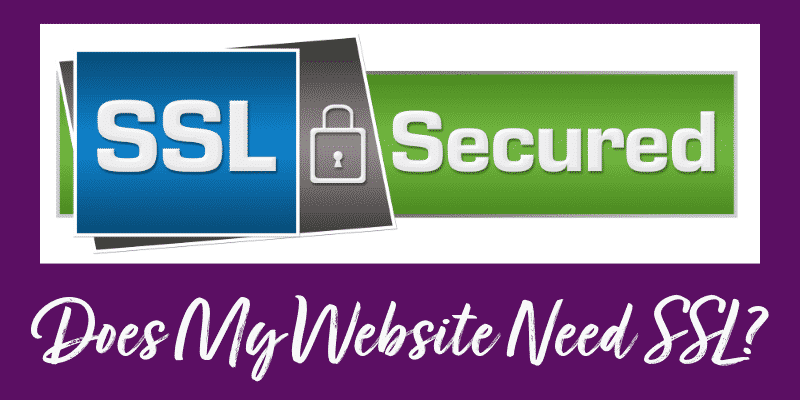
SSL stands for Secure Sockets Layer. It’s the technology used to provide security over a computer network and is widely used on the Internet. It protects your customers against the “man-in-the-middle” traffic attacks over the Internet.
Here are my top 3 reasons why your website needs SSL?
- SSL tells your customers that you care about them.
- SSL tells your customers that you want them to feel safe on your website.
- SSL tells your customers that you understand; that they want and need to know that their personal information is NOT at risk when using your website.
Personal information like home addresses, social security numbers, healthcare information, email addresses, and passwords still go for big money on the dark web.
DO NOT make it an enticing and easy grab for hackers. Use SSL.
What does an SSL Certificate actually do?
An SSL certificate holds an encryption key and installs it on your hosting account. When a browser fetches your website all the information transferred over the Internet is encrypted. Not just credit card information. All personal data is safer from getting intercepted by nefarious people.
How can you tell if a website is using SSL?
There are many ways to tell if a website has an SSL Certificate.
- The URL will display as HTTPS instead of HTTP – The additional S stands for Secure.
- There will be a padlock displayed next to the website address in the browser’s address bar. Some browsers display it as green and others are grey.
- Chrome and Edge will block a website without an SSL Certificate and warn the user that one is not installed. The browser recommends the user does not visit the website. This is very bad for a business and website traffic.
![]()
Is SEO (Search Engine Optimization) affected?
In 2017 Google started to really crack down on websites that do not have SSL. They announced they would no longer rank websites without it. This is when most business owners decided to start using SSL.
How does one get an SSL Certificate?
Most hosting companies will offer a free version. The free version should be good enough if your website is for informational purposes only and you are not requesting any personal information.
If your website is:
- eCommerce: Then it would be wise to step up and get a paid version.
- Paid SSL Certificates come with some level of insurance that will help to cover expenses if there is an identity theft traced back to your website.
- Accepting Credit Cards: Get a paid version.
- Requesting information through forms: Get a paid version
I also recommend that you get a Managed WordPress Hosting account, since it comes with an SSL Certificate.



